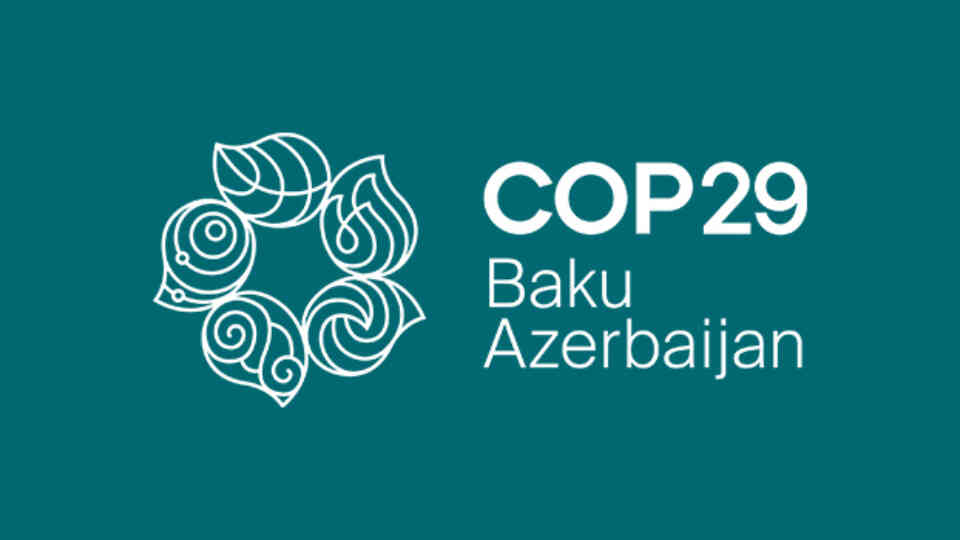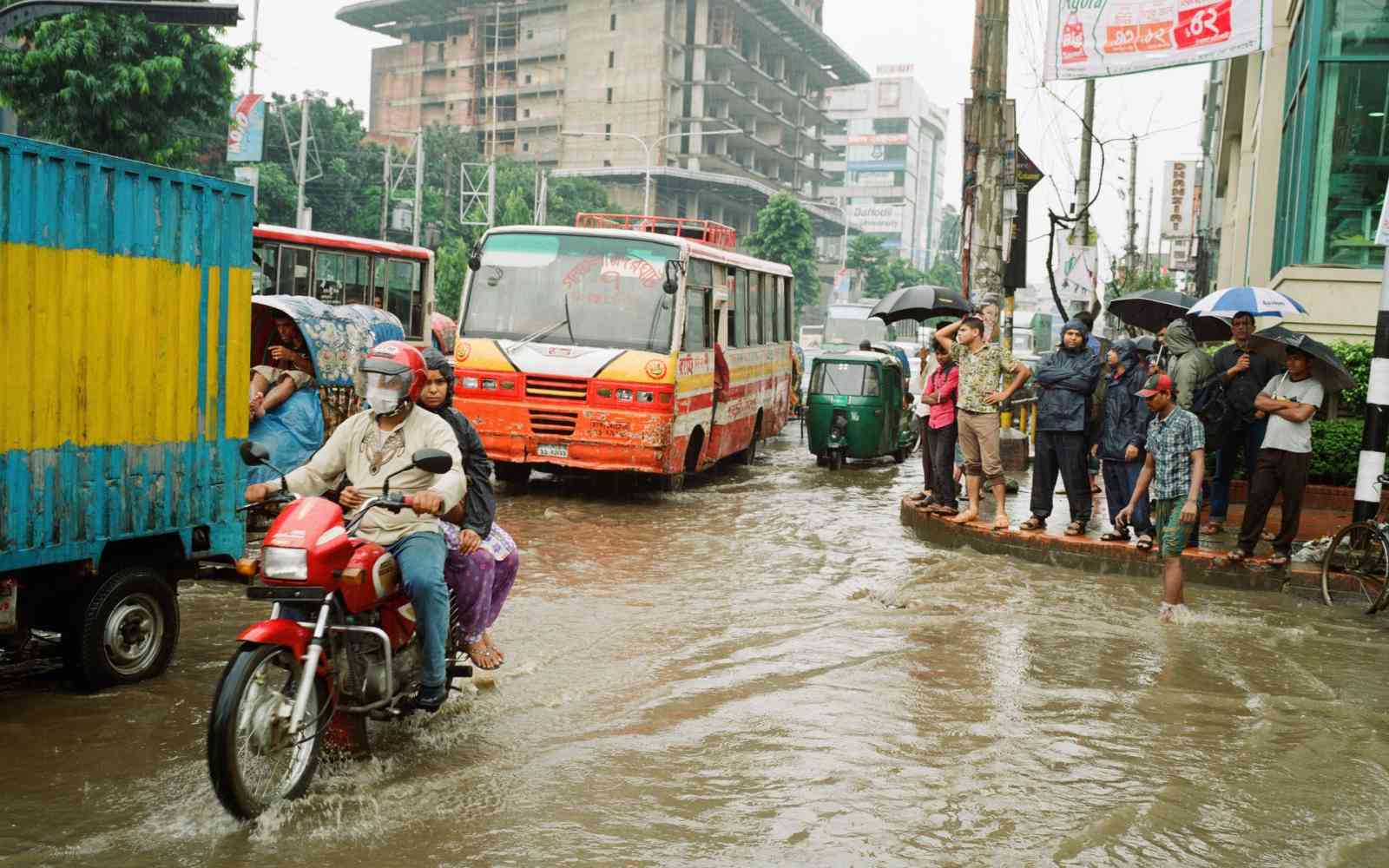The United Nations Office for Project Services (UNOPS)
Declaración sobre la Red de Santiago para Pérdidas y Daños ante la Presidencia de la COP29
Declaración de Émilie Potvin, Directora de la Oficina de Portafolios Globales de UNOPS, durante la Conferencia de las Naciones Unidas sobre el Cambio Climático de 2024 o Conferencia de las Partes (COP29).
[Check against delivery]
Excellency, distinguished delegates, and esteemed colleagues,
I would like to thank you for inviting me, on behalf of UNOPS, to address this panel today as we come together to advance the critical mission of the Santiago network for loss and damage.
I also extend my thanks to the COP29 Presidency for convening this event, and warmly welcome Carolina Fuentes as the newly appointed Director of the Santiago network secretariat.
We are united in recognizing that the climate emergency is the defining challenge of our time, demanding collective and accelerated action.
It is undeniable that the devastating impacts of climate change disproportionately affect the world’s most vulnerable populations, threatening their livelihoods, security and future prosperity.
To address this challenge, comprehensive frameworks for support, such as the Santiago network, are indispensable.
The establishment of the Santiago network at COP25 was a pivotal step in supporting vulnerable countries and communities facing climate-induced loss and damage.
This network’s purpose – to bridge the gap between climate vulnerable countries, and their urgent needs, to experts that can provide the solutions. This aligns with UNOPS core mission to advance sustainable practices and develop practical solutions that bolster resilience, impacting where they are needed most.
UNOPS delivers infrastructure, procurement and project management services that contribute to sustainable development and climate resilience.
Our organization supports countries in turning complex challenges into opportunities for growth and stability.
By focusing on solutions that integrate sustainability, risk management and technical know-how, UNOPS empowers communities and builds lasting resilience in the face of escalating climate pressures.
At COP28, the appointment of UNOPS and the UN Office for Disaster Risk Reduction (UNDRR) as co-hosts of the Santiago network was a strategic decision that leverages our complementary strengths.
The technical expertise and policy guidance provided by UNDRR, combined with the operational capacity and project delivery experience of UNOPS, ensure that the network can fulfil its mandate effectively.
Our commitment to this partnership is rooted in an unwavering dedication to support countries and communities in building resilience and sustainable development.
We are proud to collaborate with UNDRR and the UN Framework Convention on Climate Change (UNFCCC) in this vital endeavour, ensuring that the Santiago network operates as a conduit for knowledge sharing, capacity building and the mobilization of technical resources.
In just one year, we have made significant strides.
But we know there is more to be done and we are ready to build on these strong foundations.
Under the Advisory Board’s guidance, and through strong collaboration with partners, we have developed robust guidelines on membership and technical assistance delivery, which now provide a solid framework for the network’s operations.
Membership is now open, and the first cohort of members has been onboarded, representing a diverse and skilled body of experts.
This inclusivity reflects our shared commitment to serving the communities most impacted by climate change, ensuring they receive timely and tailored assistance.
The unique value of the Santiago network lies in its ability to harness and coordinate existing expertise, bridging the gap between needs on the ground and the targeted support that can make a tangible difference.
The network’s demand-driven approach ensures that countries receive assistance that is context-specific and responsive to their priorities.
This principle of listening to – and prioritizing those most affected – aligns with UNOPS approach to implementing projects. We respond to local contexts and needs, emphasizing sustainable outcomes and meaningful engagement.
Looking ahead, UNOPS is committed to reinforcing partnerships, promoting knowledge sharing and facilitating the swift delivery of technical assistance.
We recognize that addressing the urgent needs of climate-vulnerable communities requires a multilateral approach that engages a wide range of stakeholders – from the communities themselves, to international organizations, NGOs, the private sector, civil society and academia.
The Santiago network represents a vital platform for nurturing this essential collaboration and fostering innovative solutions. And with our experience, UNOPS is well placed to enable these solutions.
As the landscape of loss and damage continues to evolve, UNOPS will uphold its role as co-host with unwavering dedication and resolve.
Together with the Advisory Board, UNDRR and the UNFCCC we will strive to ensure that the Santiago network meets its objectives and delivers timely, effective support to those on the frontlines of the climate crisis.
Through continued partnerships and collective action, we can build a future that safeguards communities, strengthens resilience and upholds the principles of justice.
Thank you.
We are united in recognizing that the climate emergency is the defining challenge of our time, demanding collective and accelerated action.
It is undeniable that the devastating impacts of climate change disproportionately affect the world’s most vulnerable populations, threatening their livelihoods, security and future prosperity.
To address this challenge, comprehensive frameworks for support, such as the Santiago network, are indispensable.
The establishment of the Santiago network at COP25 was a pivotal step in supporting vulnerable countries and communities facing climate-induced loss and damage.
This network’s purpose – to bridge the gap between climate vulnerable countries, and their urgent needs, to experts that can provide the solutions. This aligns with UNOPS core mission to advance sustainable practices and develop practical solutions that bolster resilience, impacting where they are needed most.
UNOPS delivers infrastructure, procurement and project management services that contribute to sustainable development and climate resilience.
Our organization supports countries in turning complex challenges into opportunities for growth and stability.
By focusing on solutions that integrate sustainability, risk management and technical know-how, UNOPS empowers communities and builds lasting resilience in the face of escalating climate pressures.
At COP28, the appointment of UNOPS and the UN Office for Disaster Risk Reduction (UNDRR) as co-hosts of the Santiago network was a strategic decision that leverages our complementary strengths.
The technical expertise and policy guidance provided by UNDRR, combined with the operational capacity and project delivery experience of UNOPS, ensure that the network can fulfil its mandate effectively.
Our commitment to this partnership is rooted in an unwavering dedication to support countries and communities in building resilience and sustainable development.
We are proud to collaborate with UNDRR and the UN Framework Convention on Climate Change (UNFCCC) in this vital endeavour, ensuring that the Santiago network operates as a conduit for knowledge sharing, capacity building and the mobilization of technical resources.
In just one year, we have made significant strides.
But we know there is more to be done and we are ready to build on these strong foundations.
Under the Advisory Board’s guidance, and through strong collaboration with partners, we have developed robust guidelines on membership and technical assistance delivery, which now provide a solid framework for the network’s operations.
Membership is now open, and the first cohort of members has been onboarded, representing a diverse and skilled body of experts.
This inclusivity reflects our shared commitment to serving the communities most impacted by climate change, ensuring they receive timely and tailored assistance.
The unique value of the Santiago network lies in its ability to harness and coordinate existing expertise, bridging the gap between needs on the ground and the targeted support that can make a tangible difference.
The network’s demand-driven approach ensures that countries receive assistance that is context-specific and responsive to their priorities.
This principle of listening to – and prioritizing those most affected – aligns with UNOPS approach to implementing projects. We respond to local contexts and needs, emphasizing sustainable outcomes and meaningful engagement.
Looking ahead, UNOPS is committed to reinforcing partnerships, promoting knowledge sharing and facilitating the swift delivery of technical assistance.
We recognize that addressing the urgent needs of climate-vulnerable communities requires a multilateral approach that engages a wide range of stakeholders – from the communities themselves, to international organizations, NGOs, the private sector, civil society and academia.
The Santiago network represents a vital platform for nurturing this essential collaboration and fostering innovative solutions. And with our experience, UNOPS is well placed to enable these solutions.
As the landscape of loss and damage continues to evolve, UNOPS will uphold its role as co-host with unwavering dedication and resolve.
Together with the Advisory Board, UNDRR and the UNFCCC we will strive to ensure that the Santiago network meets its objectives and delivers timely, effective support to those on the frontlines of the climate crisis.
Through continued partnerships and collective action, we can build a future that safeguards communities, strengthens resilience and upholds the principles of justice.
Thank you.











